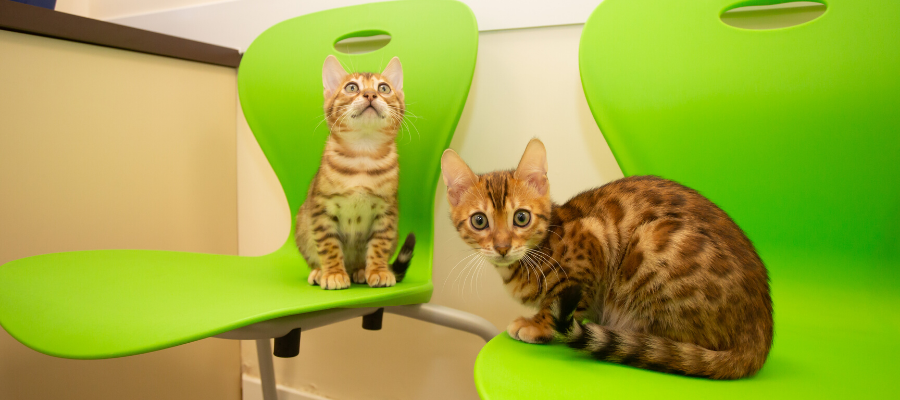 What does the thyroid do?
What does the thyroid do?
The thyroid glands are located in the neck and are responsible for producing thyroid hormones which, amongst other functions, help to regulate a cat’s metabolism.
What is hyperthyroidism?
Hyperthyroidism is caused by an overproduction of thyroid hormone due to an enlarged thyroid gland.
What causes hyperthyroidism?
Hyperthyroidism, in the majority of cases, is caused by benign (non-cancerous) tumours which result in an enlargement of the gland. There is no known reason for such a tumour to develop. However, older cats are more susceptible to the disease and there have been studies linking a high dietary iodine level to a greater risk of developing the disease.
What are the signs of hyperthyroidism?
The increase in thyroid hormones will result in an increased metabolism, leading to a higher energy demand and consumption.
Clinical signs can include:
- Increased appetite
- Weight loss
- Increased thirst
- Increased urination
- Increased activity/restlessness
- Aggression
- Greasy and matted coat
- Vomiting
- Diarrhoea
How is hyperthyroidism diagnosed?
Your vet will perform a full clinical examination, in some cases it may be possible to feel the enlarged thyroid gland in the neck.
A blood test will be required to determine the levels of the thyroid hormone. These tests will need to be repeated throughout the management of the condition to ensure the thyroid is not being over or under supressed.
Hyperthyroidism can lead to secondary conditions such as hypertension (high blood pressure) and heart disease. Further diagnostic tests such as urinalysis, ultrasounds and blood pressure monitoring may be required to assess your cat’s overall health in order to construct an appropriate treatment plan.
How is hyperthyroidism treated?
Fortunately, although hyperthyroidism cannot be cured, the outlook for hyperthyroid cats is very good with treatment to control the disease. Your vet will decide on the best prescription medications for your cat in order to treat their condition. Regular vet check-ups and blood tests will be necessary to monitor the condition.
Call us on 01435 864422 if your cat is showing any symptoms of hyperthyroidism.

